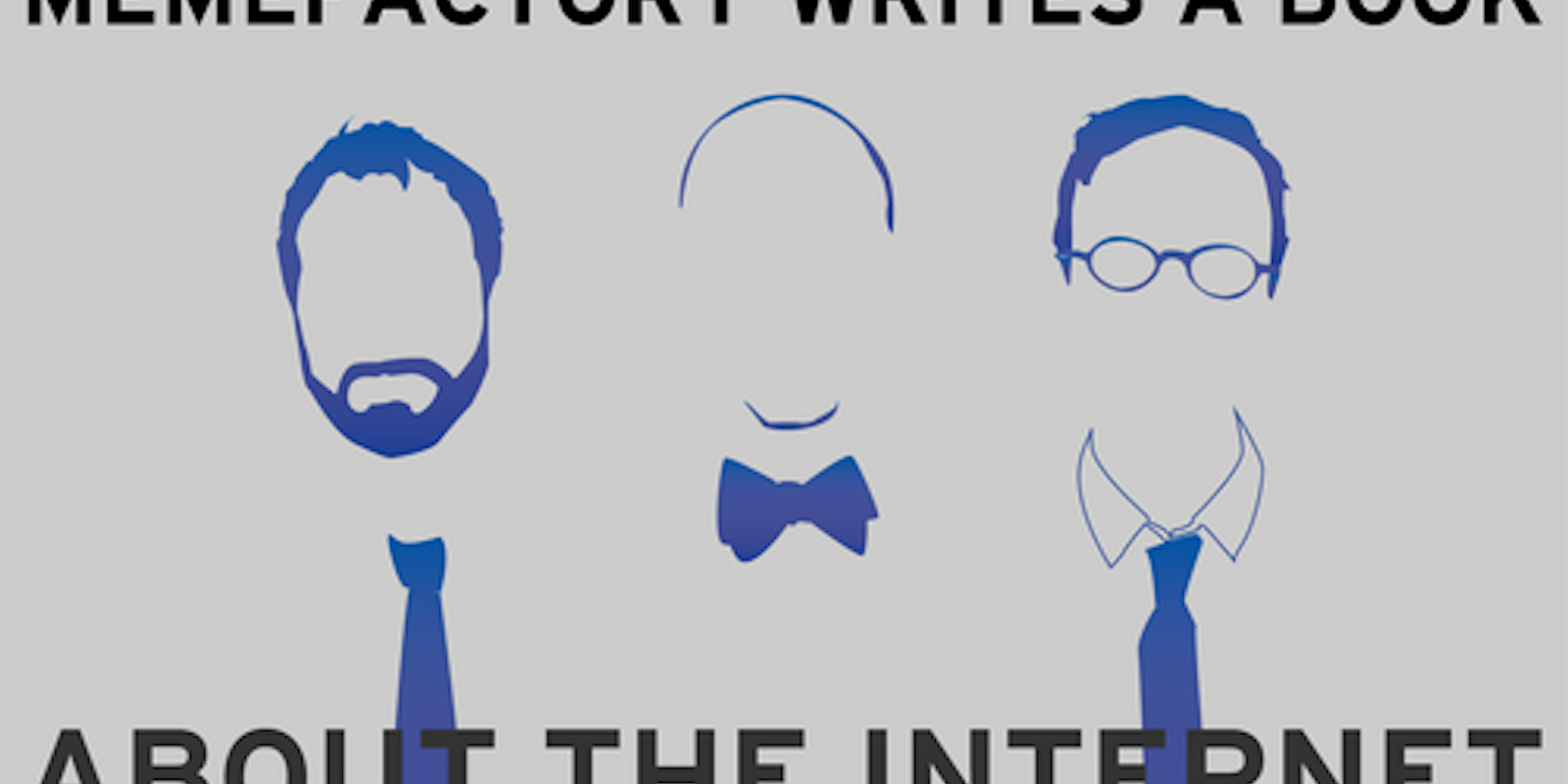Meme Factory shows ought to reach the kind of viral fame that defines the memes they chronicle.
The trio of three bearded Brooklynites capped off the first day of ROFLcon Friday with a modern art performance that combined a breadth of Internet knowledge with seriously funny, ironic wit and a potent ability to weave disparate Internet culture together into a single story. Sitting in the dark, lit only by the screens of their three Macbooks, the trio wove a carefully choreographed, complex (and at times confusingly self-referential) narrative illustrated by three interwoven Powerpoint presentations displayed on three projectors.
It is weird, funny, and awesome.
“Are the only funny things today things that perfect old funny things?” they asked Friday. Stephen Bruckert, Patrick Davison, and Mike Rugnetta explored the history and future of Internet humor, from the hamster dance to Scumbag Steve to Nyan Cat. They claimed the entire Internet is in the throes of a kind of eternal September—the notion, coined on Usenet networks in the early 1990s, that Internet communities inherently decline as they grow bigger, thanks to a flood of new users unfamiliar with their customs and culture.
Gone are the days of endearingly bad and absurd humor arising almost accidentally from small corners of the Internet (like, say, hamster dance and peanut butter jelly time). They’ve been replaced with either slick, high-quality videos meant to be funny, or armies of image memes, whose hackneyed jokes and one-dimensional characters are, the trio said, akin to a bad Internet sitcom (Big Bang Theory, to be specific).
Meme Factory is so good, we want more. Unfortunately, the archives of their past performances aren’t nearly enough to satisfy, and the video from last night’s show likely won’t go up for another week.
Meme Factory’s performances—in a likely intentional twist of irony—are difficult to translate to an easily sharable online form.
Maybe that’s why they’re writing a book.
Photo by MemeFactory


